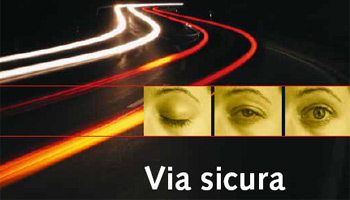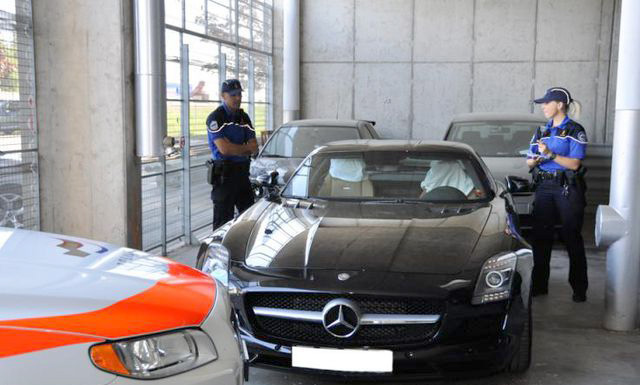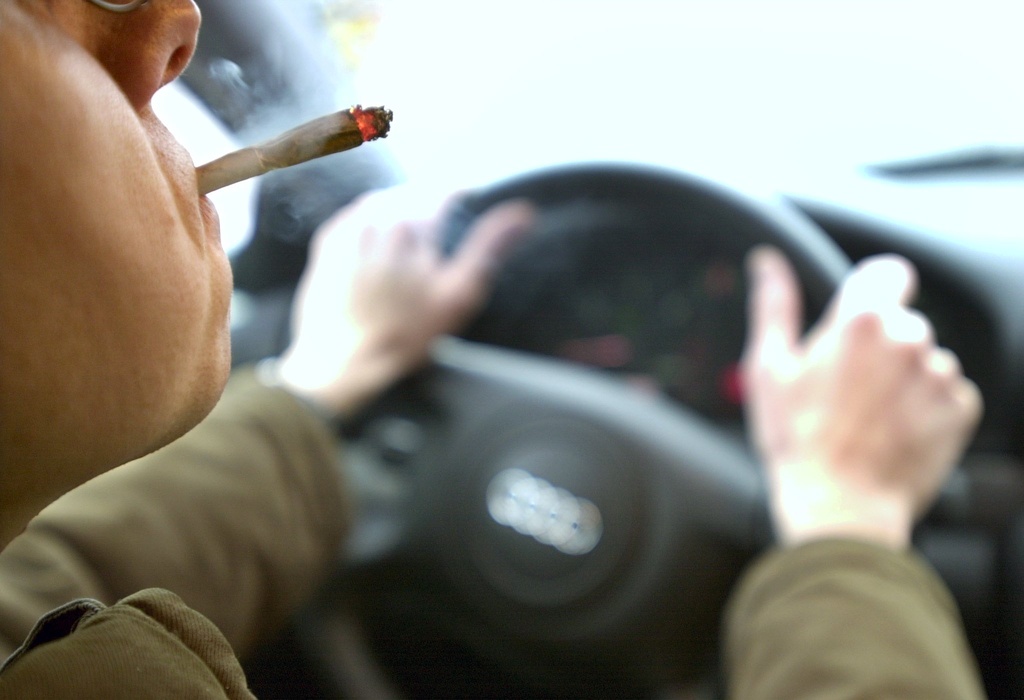Bill motors towards tougher road rules

A Swiss government scheme for improving road safety is heading to parliament, but the way forward looks long with reactions so far only lukewarm.
Ten years in the making, the transport ministry’s Via Sicura package of measures has gradually been watered down from an initial 56 to a final 23 steps as a result of objections coming from different quarters.
Gone are the most divisive points, such as plans to make helmets compulsory for cyclists – an idea rejected by the national cycling association. But some controversial ideas still remain, including car black boxes and vehicle immobilisers for drunk drivers.
Over the past decade the number of deaths in road accidents has dropped by 40 per cent; there were 349 deaths in 2009, and 4,708 people seriously injured. Going back to the 1970s, around 1,700 people died in car accidents every year.
Announcing the cabinet’s backing of Via Sicura this week, outgoing Transport Minister Moritz Leuenberger said the aim of the package was to further reduce the number of victims in accidents by another 25 per cent.
Tougher and pre-emptive
Leuenberger said resistance to the recommendations had been “very strong”, although every time there was a serious accident that shocked the public, the government was taken to task for not having introduced suitable policies. Leuenberger said he was happy with the final outcome of Via Sicura, even though the number of measures had more than halved since its inception.
The package now includes preventative measures such as not allowing children under seven to ride bikes on streets and a ban on certain people drinking any alcohol and driving.
It wants “better ways of enforcing current rules”, such as making driving licences valid for shorter periods, and tougher steps for reckless drivers, for example making convicted drunk drivers fit immobilisers to their cars that would work in tandem with breathalisers.
As well as safety steps, the government wanted the package to build in room to manoeuvre in future and pave the way to conclude agreements with other states to enable them to share vehicle records and driving licence data and enforce penalties or fines.
Nitpicking
The adoption of the package by the cabinet signalled the start of the parliamentary process, during which it will need the approval of both the Senate and the House of Representatives. It could be up to a year before it is discussed.
Political parties and interested parties have now begun weighing in. While the overall direction of the Via Sicura package has been largely accepted, many are still taking issue with certain points.
The country’s main motorists’ organisation, the Touring Club of Switzerland, told swissinfo.ch that the project was “positive overall” because it had concrete measures that could improve road safety. But it will be lobbying against giving insurers access to accident data and making car owners accountable for fines.
It also criticised the lack of funding for the plans to remove road black spots and wants to see details of how black boxes and immobiliser systems would work in practice.
“It is up to the parliament to decide what it will keep and what it will change. We have taken a position and will try to influence the debate in order to obtain a law that corresponds best to the reality of the situation,” said spokesman Moreno Volpi.
RoadCross, the Swiss foundation for victims of road accidents, has welcomed the action on drink-driving. The Association for Transport and Environment said there were not enough measures for protecting pedestrians and cyclists.
The Swiss Council for Accident Prevention hailed the package and said it was a “step towards a significant reduction of deaths and serious injuries on the road, a necessity in light of the suffering and material costs caused by accidents”.
The Tages-Anzeiger newspaper was sceptical that it would get through parliament unscathed, with conservative parties saying the various age restrictions included were a bureaucratic attack on freedom and individual responsibility. The Swiss People’s Party, the Christian Democrats and Radicals unanimously opposed the introduction of a start age of seven for riding bikes in streets.
Radical parliamentarian Markus Hutter predicted only half of the measures would get through in the end.
For the Tribune de Genève, “Via Sicura combines prevention and repressive measures, with age discriminations along the way”. Do “such a regulatory corset” really have to be imposed, the newspaper asked.
The government abandoned the most hotly contested measures, raised during the consultation procedure, such as the introduction of a mandatory training day every ten years for all drivers or the creation of traffic courts.
Among those remaining are:
Driving licences expire when drivers reach the age of 50, and are renewed every 10 years.
Age limit of 70 for people driving 8+ seater vehicles.
Extra driving classes for drivers whose licence is suspended for driving under the influence of drugs or alcohol.
Drivers whose licence has been taken away for one year or more due to speeding violation can start driving again if their car is fitted with a black box for five years.
Drivers whose licence was taken away indefinitely for drink-driving can, after following a course of therapy, regain their licence if they fit breathaliser-linked immobilisers to their vehicle, and use them for five years.
Only children aged 7 and over can ride a bike on public roads.
Accident data can be transmitted on a case-by-case basis to car insurers.
Helmets are obligatory for children while cycling, up to the age of 14.
Serious traffic offenders can have their car confiscated.
The government can sign treaties with other states.
(with input from Eveline Kobler)

In compliance with the JTI standards
More: SWI swissinfo.ch certified by the Journalism Trust Initiative













You can find an overview of ongoing debates with our journalists here . Please join us!
If you want to start a conversation about a topic raised in this article or want to report factual errors, email us at english@swissinfo.ch.